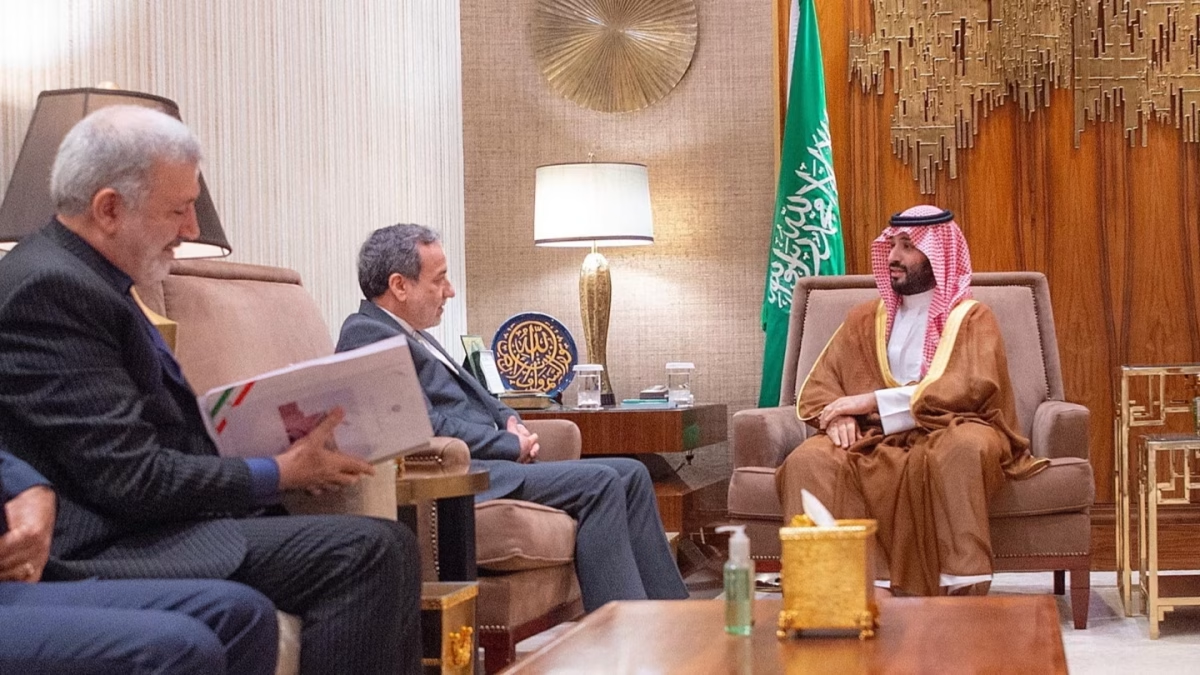Gulf countries have strongly condemned Israel’s recent strikes on Iran, expressing deep concern over a potential escalation that could undermine regional security and threaten vital economic interests.
Experts say the region’s monarchies now find themselves in a delicate position. While they may quietly welcome the weakening of Iran, they must also tread carefully to avoid being drawn into the conflict.
“They are very much caught between a rock and a hard place,” Sanam Vakil, director of the Middle East and North Africa Programme at Chatham House, told AFP. “While they are quietly applauding the further weakening of Iran, they face real risks and have to play their cards carefully.”
The Gulf’s close alliances with the United States, which maintains military bases across the region, alongside their geographical proximity to Iran and its missile capabilities, leave them highly exposed.
Saudi Arabia, for example, has taken a cautious stance. According to Vakil, Saudi diplomats are “distancing themselves from Israel and condemning the strikes” as a strategy to avoid being pulled into the conflict.
This comes during a fragile diplomatic thaw between Saudi Arabia and Iran, brokered by China in 2023. The renewed ties mark a significant shift from a decade ago when Saudi leaders were actively urging Washington to launch military action against Tehran.
“In the past, Saudi Arabia labelled Iran ‘the head of the snake’ and encouraged a tougher US stance,” noted Karim Bitar, a Middle East lecturer at Sciences Po university in Paris. “Now, the Saudis are promoting dialogue.”
Following Israel’s strikes, Saudi Foreign Minister Faisal bin Farhan reportedly called his Iranian counterpart to emphasise the importance of diplomacy in resolving disputes.

Gulf nations are increasingly concerned that any Israeli escalation could unravel years of economic planning and threaten regional stability. Crown Prince Mohammed bin Salman has been focused on ambitious domestic reforms and diversifying the Saudi economy beyond oil—goals that rely heavily on regional calm.
During Donald Trump’s previous term as US president, Saudi Arabia and the UAE had pushed for a tougher stance on Iran and welcomed the US withdrawal from the 2015 Iran nuclear agreement.
But their perspective shifted after a series of attacks believed to be orchestrated by Iran or its proxies received limited US military backing. The 2019 strikes on Saudi Arabia’s Abqaiq processing plant and Khurais oil field—which temporarily cut oil output by half—marked a turning point. Though responsibility was claimed by Yemen’s Houthi rebels, Riyadh and Washington blamed Tehran, which denied involvement.
The UAE has also suffered attacks, including a 2022 drone strike in Abu Dhabi. These incidents have led Gulf monarchies to pursue détente with Iran, aiming to minimise the threat to their own territories and US bases in the region.
“The biggest concern in the Gulf now is whether the United States will use these bases to defend Israel,” said Middle East analyst Andreas Krieg. “That could make them targets.”
Although the Trump administration has publicly distanced itself from Israel’s latest operations, it has made clear that any Iranian attacks on American personnel or facilities will trigger a direct response.
“There is a red line,” said Vakil. “The US has warned that strikes on its forces will provoke a reaction.”
Still, for now, Iran appears unlikely to target Gulf infrastructure or assets, she added.
Leaders from Saudi Arabia, Qatar, and the UAE are reported to have urged Trump during his recent regional visit not to launch strikes on Iran’s nuclear facilities, instead calling for a return to diplomacy. US-based outlet Axios said the Gulf states hoped Trump would rein in Israeli Prime Minister Benjamin Netanyahu’s push for escalation.
Talks between the US and Iran over the nuclear deal were reportedly due to continue in Oman this week. However, the Israeli strikes may now jeopardise those efforts.
“It looks like Israel is trying to torpedo the negotiations,” said Bitar. “The real question is: how will Washington respond? Will it continue to offer unwavering support to Israel, or attempt to revive diplomatic talks with Iran?”


 Trending
Trending 